Book of the Day Roundup April 13-17, 2020
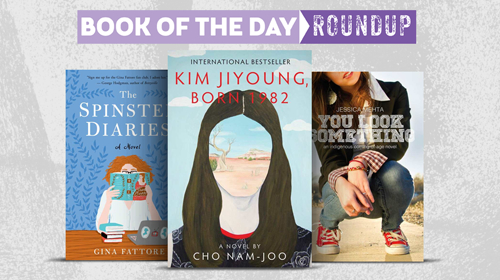
The Fantastical Exploits of Gwendolyn Gray
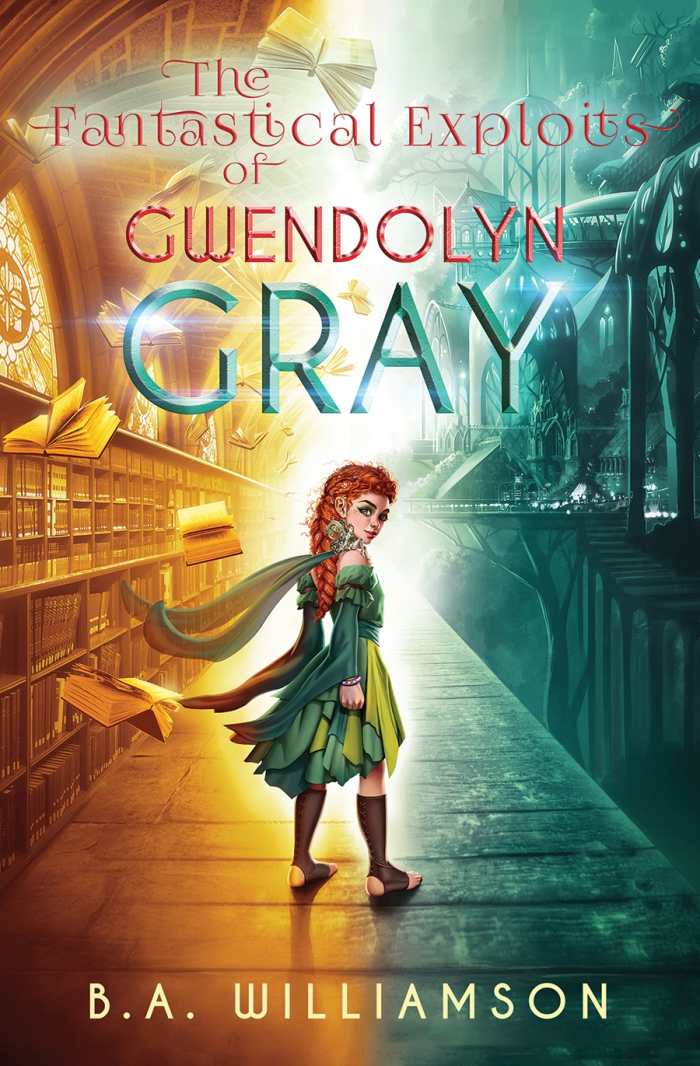
B. A. Williamson
Jolly Fish Press
Softcover $11.99 (384pp)
978-1-63163-435-2
Buy: Local Bookstore (Bookshop)
B. A. Williamson’s The Fantastical Exploits of Gwendolyn Gray bounces between fantasy worlds, spurred by the power of imagination.
Gwendolyn Gray saved the world—or so she thought. Her grey-skied city seems no better off than before, and she feels crushing apathy and sadness. A fearful turn of events brings back the Lambents, who hypnotize her classmates. But Gwendolyn can imagine things into reality, and that power may be the key to escaping the frightening Faceless Gentlemen.
Gwendolyn enters new worlds, including the Library of All Wonder and Faeoria, the land of faeries. Each new land is described in terms of its history, magic, and people, through the eyes of characters who guide Gwendolyn well.
Gwendolyn breaks the norms often, as when she ignores her mentor and pledges her self in service to the queen of Faeoria. As she adjusts to different settings, she learns how to balance her impulses with the advice of valuable allies. When she makes mistakes, she learns to live with their consequences and recover with grace.
Her travels lead her to the heart of her city, where she receives terrifying answers regarding the grim future of her world. She must decide whether she should do what is best for her world, or run away to join another one forever. The central villain makes her doubt even her previous belief that she knows what’s best for her world; she searches for the inner strength to proceed in uncertainty.
The cheeky, unreliable omniscient narrator keeps things funny and light, even when grim evil is bearing down on Gwendolyn. Gwendolyn’s cycles between depression and mania are foregrounded as elements of her wonderful personality, rather than as mere impediments to her success.
In the surprising middle grade fantasy The Fantastical Exploits of Gwendolyn Gray, self-acceptance is key.
LAURA LEAVITT (February 27, 2020)
Kim Jiyoung, Born 1982
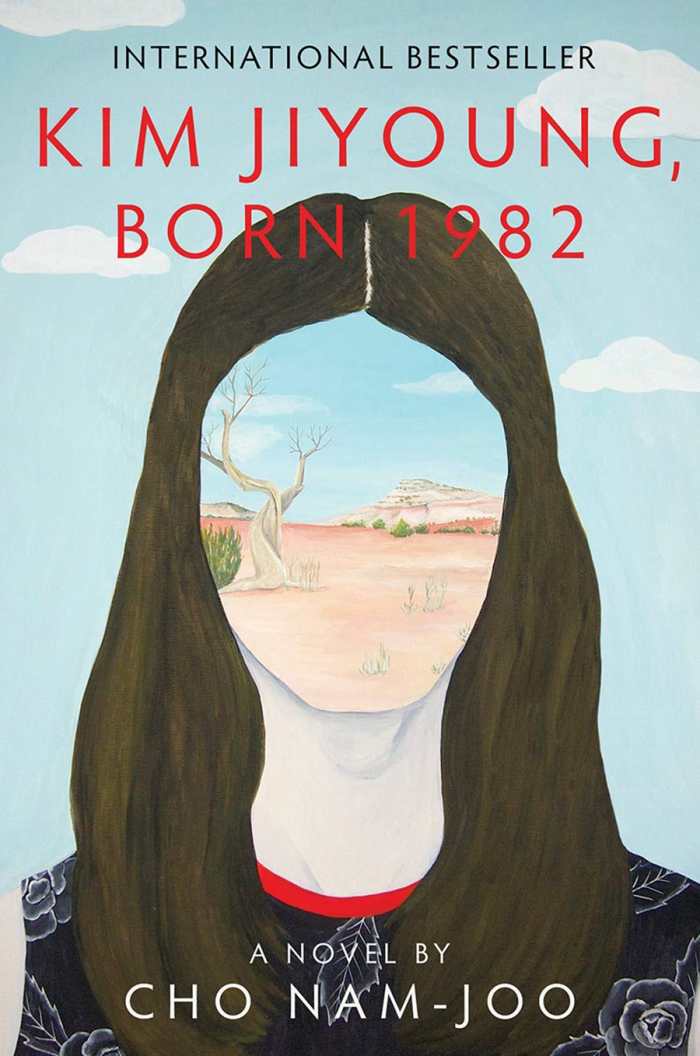
Cho Nam-Joo
Jamie Chang, translator
Liveright
Hardcover $20.00 (144pp)
978-1-63149-670-7
Credited with igniting Korea’s next feminist wave, Kim Jiyoung, Born 1982 censures patriarchal cultures with its rage-inducing stories of everyday abuses.
One ordinary night in his ordinary home, Daehyun notices that a change has come over his wife, Jiyoung, who speaks in the voice of her deceased mother. Days later, she assumes the personality of a college friend who died in childbirth. The trend continues: “Jiyoung became different people from time to time … all of them women she knew.”
Trapped at home by convention, Jiyoung tries on these different women’s lives, only to discover that all women are wronged. Her mother, who relinquished a brilliant future to support men, found her childhood hopes reduced to a family punchline. Jiyoung fares little better.
In childhood, Jiyoung witnesses a teacher’s daily assaults on a classmate; she’s followed home by a boy who’s certain that she led him on. After college, she winds up underpaid and overworked; she has to give up even this dubious privilege to start a family. “The world had changed a great deal,” the book reflects, “but the little rules, contracts and customs had not, which meant the world hadn’t actually changed at all.”
The novel is a flint, naming inequality from statistical and narrative vantages and urging stands against it. Its women are dumped, used, and forced into boxes. Its “good” men are revealed to be far from faultless: secretly recorded in the bathroom, Jiyoung’s indignant former coworkers are shamed, told that “The accused male employees have families and parents to protect, too. Do you really want to destroy people’s lives like this?”
In the novel’s background, the early wail of a wronged girl redoubles; it is joined by a chorus, encompassing all women and giving all an outlet. Perennial in its relevance, Cho Nam-Joo’s novel shows that patriarchy remains powerful because it is such a banal foe.
MICHELLE ANNE SCHINGLER (February 27, 2020)
The Spinster Diaries
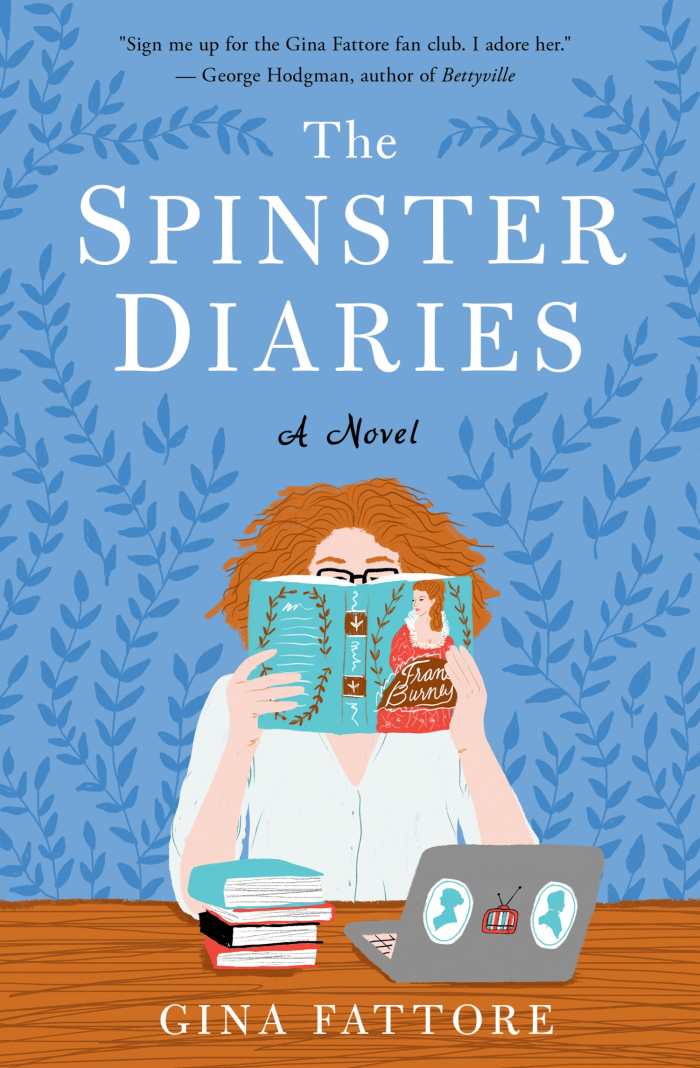
Gina Fattore
Prospect Park Books
Softcover $16.00 (216pp)
978-1-945551-73-4
Buy: Local Bookstore (Bookshop)
In Gina Fattore’s (un)romantic comedy, The Spinster Diaries, a Hollywood writer who shares the author’s name discovers that she’s ill.
The novel’s Gina is an unemployed television producer when a cyst that’s pressing on her frontal lobe is found. She’s hired to write for a show, where she can’t decide if her coworkers, dubbed the “shoe girls,” are friends or foes; she develops a crush on her engaged assistant, Dave. In her spare time, she works on a six-part miniseries about the eighteenth-century novelist credited with founding chick lit, Fanny Burney; that project carries her through her troubling times.
Organized by dated chapters, one per month, the book mimics a journal. Its plot is diffuse, following Gina’s feelings, anxieties, hopes, and dreams more than the particulars of her career. Dense with “you know”s and “whatever”s, her writing is wordy for the medium, though her frequent references to movies and television shows are jocular. Bits of script are inserted into the text to emphasize Gina’s unease with life outside of work; she’s more at home in the stories that she crafts, which are enlivened by self-coined terms and phrases, like GirlWorld and Journaling for Anxiety.
Gina’s story develops in tandem with Fanny’s. Both adopt The Spinster Way, prioritizing writing over the typical feminine protocol of marriage and children. Their relationships with their sisters highlight the importance of women’s friendships, while their resilience and humor are dominant and infectious. Fanny inspires Gina to maintain hope in the face of death, even as she herself outlives everyone she loves. The ending is unexpected and delightful.
Paying homage to women who self-actualize through their art, The Spinster Diaries focuses on two women separated by time who live out their beliefs.
MARI CARLSON (February 27, 2020)
You Look Something
An Indigenous Coming-of-Age Novel
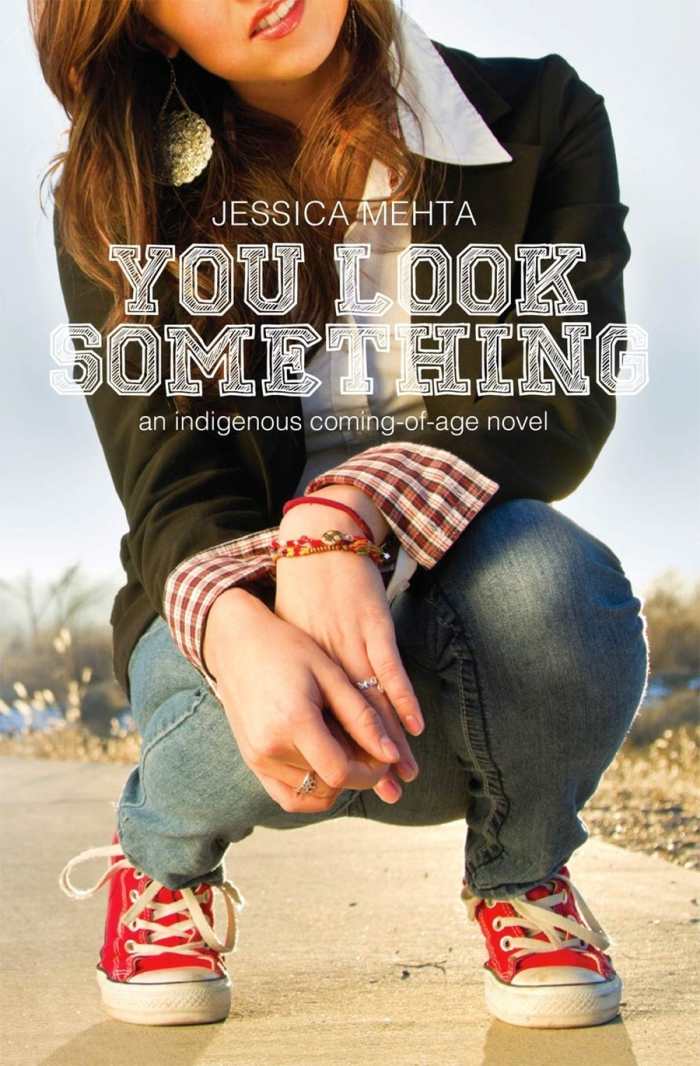
Jessica Mehta
Wyatt-MacKenzie Publishing
Softcover $14.99 (248pp)
978-1-948018-74-6
Buy: Local Bookstore (Bookshop)
Questions of body image, sexuality, family, and racial identity are raised in Jessica Mehta’s novel You Look Something.
When Julia moves from a small community college to a university in Portland, she immerses herself in every opportunity the school and city has to offer, eager to reinvent herself. Using student loans, Julia indulges in salon visits, shopping sprees, and binge drinking, racking up debt and weight. Within a year, she gains over a hundred pounds, and her self-image goes under attack because of backhanded compliments about how she “would be pretty.” A serious diagnosis for her boyfriend, Ezra, and her father further compound her weight gain and financial distress.
With her focus cluttered by Ezra and sorority life, Julia narrowly escapes expulsion and recommits herself to a new major. Channeling her experiences with poverty, parental neglect and incarceration, and racial tensions, Julia finds success in writing, but struggles with what it means to embrace her Native identity. She tans often, describing a wish to “bake beautiful into [her] too-pale skin,” and expresses guilt over applying for and accepting Native American scholarships: “Like it was a hack my white skin should have gotten me barred from.”
Julia is a complex, almost unreliable narrator. She appears ambivalent, as if experiencing her existence through a fog, and some of her choices are hard to sympathize with or understand because of her lack of introspection. Often aided by alcohol, she is apathetic in many of her relationships; this confusingly conflicts with her academic and professional aspirations.
The novel leaves a few dangling questions and hastily knotted threads—a python Julia purchases disappears from the narrative until she is rehomed late in the novel—but its final pages find Julia at a hopeful turning point, learning that it is never too late to right the ship.
DANIELLE BALLANTYNE (February 27, 2020)
The Eighth Life
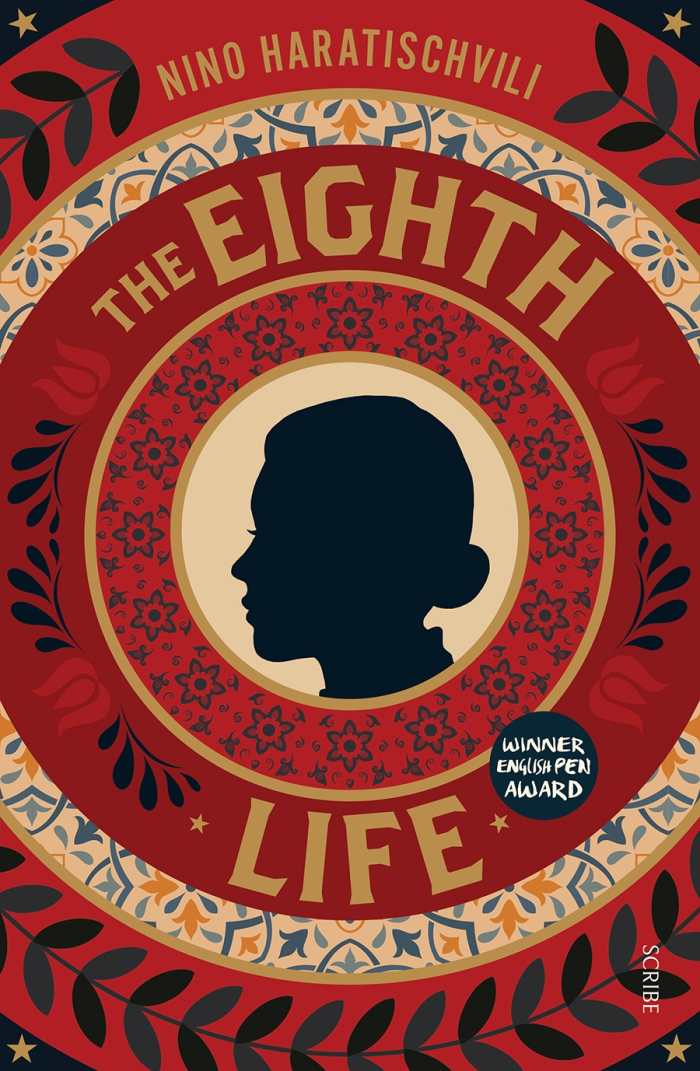
Nino Haratischvili
Charlotte Collins, translator
Ruth Martin, translator
Scribe
Softcover $28.00 (944pp)
978-1-950354-14-6
Buy: Local Bookstore (Bookshop)
Nino Haratischvili’s multigenerational Georgian novel The Eighth Life spans the years between the Bolshevik Revolution and the early twenty-first century.
It all begins with a master chocolatier and a magical hot chocolate recipe for the most irresistible drink, though it’s one that, as the family legend goes, may bestow a curse on anyone who enjoys it in its purest form. The chocolatier is the great-great-grandfather of Niza, who relays her lengthy family tale to her niece, Brilka. Over the course of the narrative, the theory of the curse appears to be proven correct: calamity after calamity befalls each generation of the family as they move through WWI, WWII, and into the present.
The novel is driven most by its women characters and their decisions. They navigate the encroachment of Communism into their beloved home country. Kitty—daughter of Stasia, great-grandmother of Niza—escapes the East and lands in London, rediscovering herself after a horrible interrogation about her lover’s whereabouts; in an attempt to escape the USSR, he defects to the German side during WWII.
Christine, Kitty’s aunt and an unsurpassed beauty, undergoes her own ordeal when she becomes the center of sexual intrigue in the upper echelons of the Communist Party. Stasia struggles with her militaristic husband’s absence and follows him to Moscow, despite the danger. These women show great resilience and resolve, even in the face of overwhelming hardship.
The novel covers more than a century; each of its characters are developed through the extensive internal monologues. All roads lead to Brilka, who runs away to Vienna in an attempt to reclaim some of her family history; she prompts Niza to preserve everything she knows for her niece, resulting in this sprawling epic of love and loss.
Though oftentimes bleak, The Eighth Life is an expansive and hopeful tale centered on family touched by war and revolution.
MEAGAN LOGSDON (February 27, 2020)
Barbara Hodge
